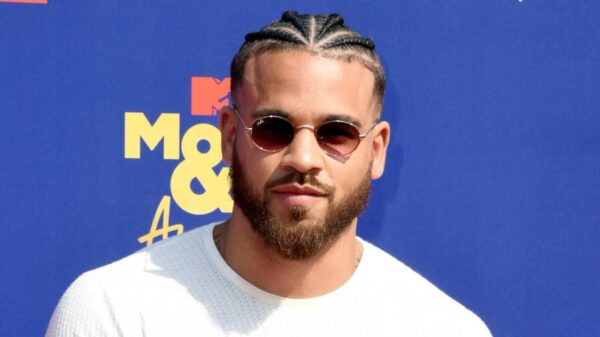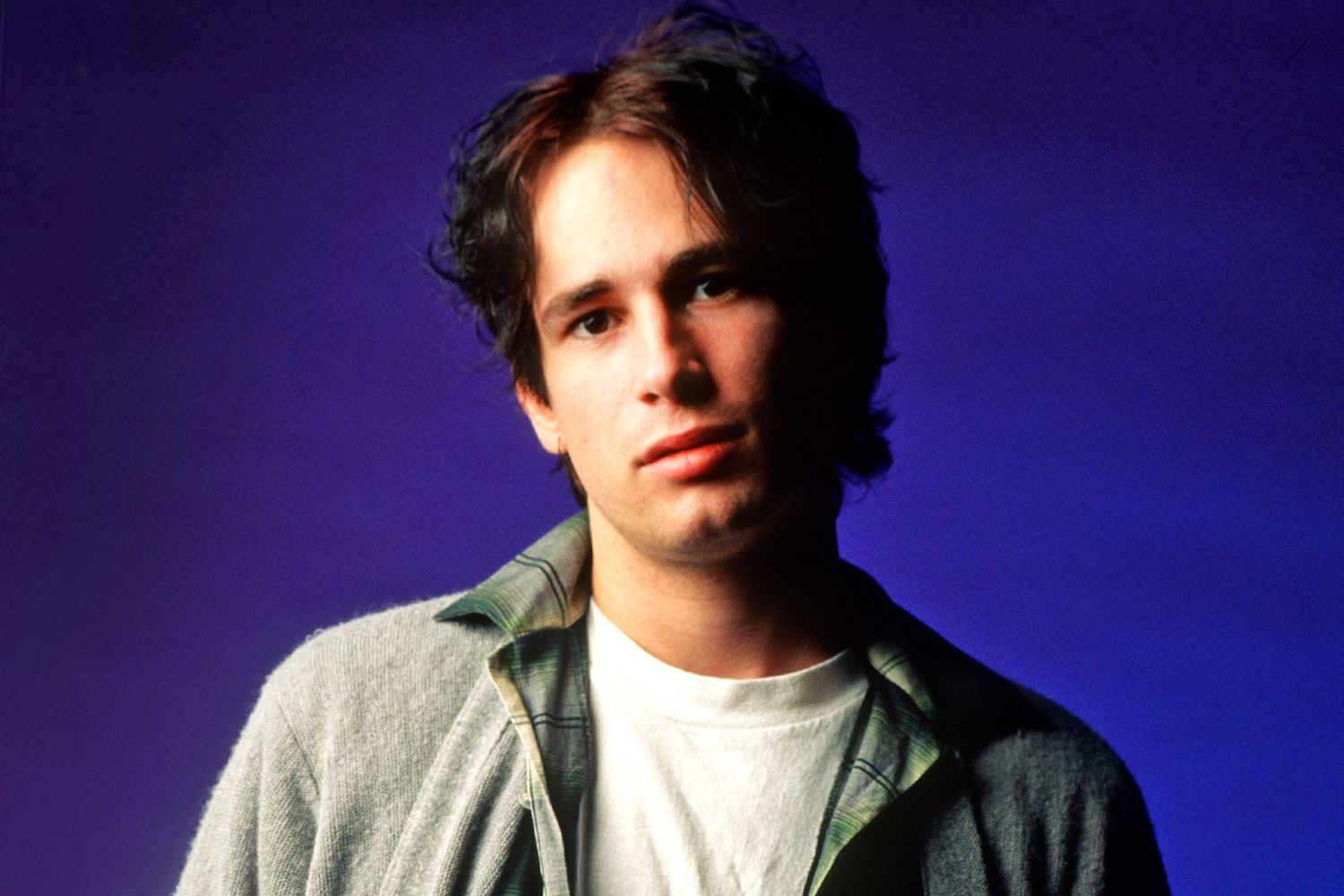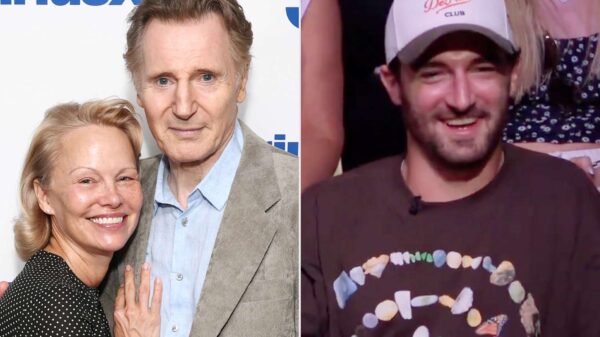NEED TO KNOW
- Before he died in 1997 at the age of 30, Jeff Buckley released the hit 1994 album, Grace
- Friends and his former partner tell PEOPLE the singer felt immense pressure after his debut and struggled with fame
- “It was just heartbreaking because it was overwhelming for him,” his former girlfriend, Rebecca Moore, says of the demands placed upon him
Jeff Buckley began his musical career carrying a burden: the legacy of a father he never knew.
“He didn’t want to be known as Tim Buckley’s son,” says director Amy Berg, whose new documentary on the “Hallelujah” singer, It’s Never Over, Jeff Buckley is out now. Tim Buckley, an experimental folk singer with a cult following, left before his son was born and died in 1975 when Jeff was 8.
“That ghost haunted him,” Berg says.
When Buckley signed a multimillion-dollar deal with Columbia Records, the expectations were even greater.
“It was a ton of pressure,” his former girlfriend, Rebecca Moore, says. “For every artist, a big record contract’s going to be pressure. But this for him had the added weight of legacy of his dad, and he was under pressure to do something unique.”
At Columbia, “there were a lot of eyes on him,” adds Buckley’s former tour manager Gene Bowen, who says that label execs looked at him as an artist in the vein of Bob Dylan and Bruce Springsteen.
His 1994 debut, Grace, was a critical success, lauded by the likes of David Bowie and Led Zeppelin’s Jimmy Page, who declared it one of his favorite albums of the decade,
Buckley was in the spotlight and on a relentless touring schedule for the years that followed. And then, expectation began to build for a second album.
“It was just heartbreaking because it was overwhelming for him,” Moore says of the demands placed upon him. “He once said to me, ‘Rebecca, I can’t even shower in the morning.’ I think all he could focus on was keeping himself upright and getting to the meetings and seeing through the obligations.”
Working 16-hour days playing shows and doing press, “there was burnout,” says Bowen. But “the label wanted pounds of flesh and they were like, ‘We want to get this record done.’ ”
Buckley’s mom, Mary Guibert, recalls Jeff once telling her, “They want to make me a commodity. They want me to make another Grace.” But, she adds, “He wanted to shock people. He wanted to create something that was edgy. He wanted to be a Morrissey. He didn’t want to be Michael Bolton.”
By 1997, still struggling to produce a second album, Buckley moved to Memphis, Tenn., to write in solitude. “He wanted some stability,” Berg says. “And that’s what Memphis represented for him at the time. I think he just wanted some peace in his life.”
Buckley began to get traction on a new album that spring, and that May he invited his band down to record. “He was extremely excited to get this thing done, to be back with the bandmates,” Bowen says. “Everything was laid out, I had all the gear down there and we had this cool old warehouse that we were going to use.”
But on the evening of May 29, on his way to meet his bandmates, he stopped at the bank of a tributary adjacent to the Mississippi and, singing along as Led Zeppelin’s “Whole Lotta Love” played on a nearby stereo, waded into the water. A wake from a passing riverboat pulled him under. His body was found six days later and an autopsy ruled his death an accident.
The recordings he left behind were released in 1998 as a second album, Sketches for My Sweetheart the Drunk. But his mother says Buckley’s legacy was far greater than his music.
“In my eulogy, I gave what I called ‘The Golden Promise’, because the absence of this one individual is such a gaping hole in our collective souls that it would take each and every one of us make a promise to do something to make the world a better place because he’s not here,” Guibert says.
Take PEOPLE with you! Subscribe to PEOPLE magazine to get the latest details on celebrity news, exclusive royal updates, how-it-happened true crime stories and more — right to your mailbox.
Bowen took that to heart, and with Guibert’s support, he co-founded Road Recovery Foundation, which pairs music industry mentors with young people struggling with addiction and other issues to help them heal through art and performance.
It was a cause, says Bowen, a former addict himself, that Jeff encouraged him to pursue.
“He understood what it’s like to be lost, to not fit into the equation, to be the outcast,” says Bowen, who adds that the program has helped more than 50,000 young people in the 27 years it’s been in operation. “And anyway he could elevate someone else, he wanted to help. Especially young people, he loved that.”
Read the full article here










































